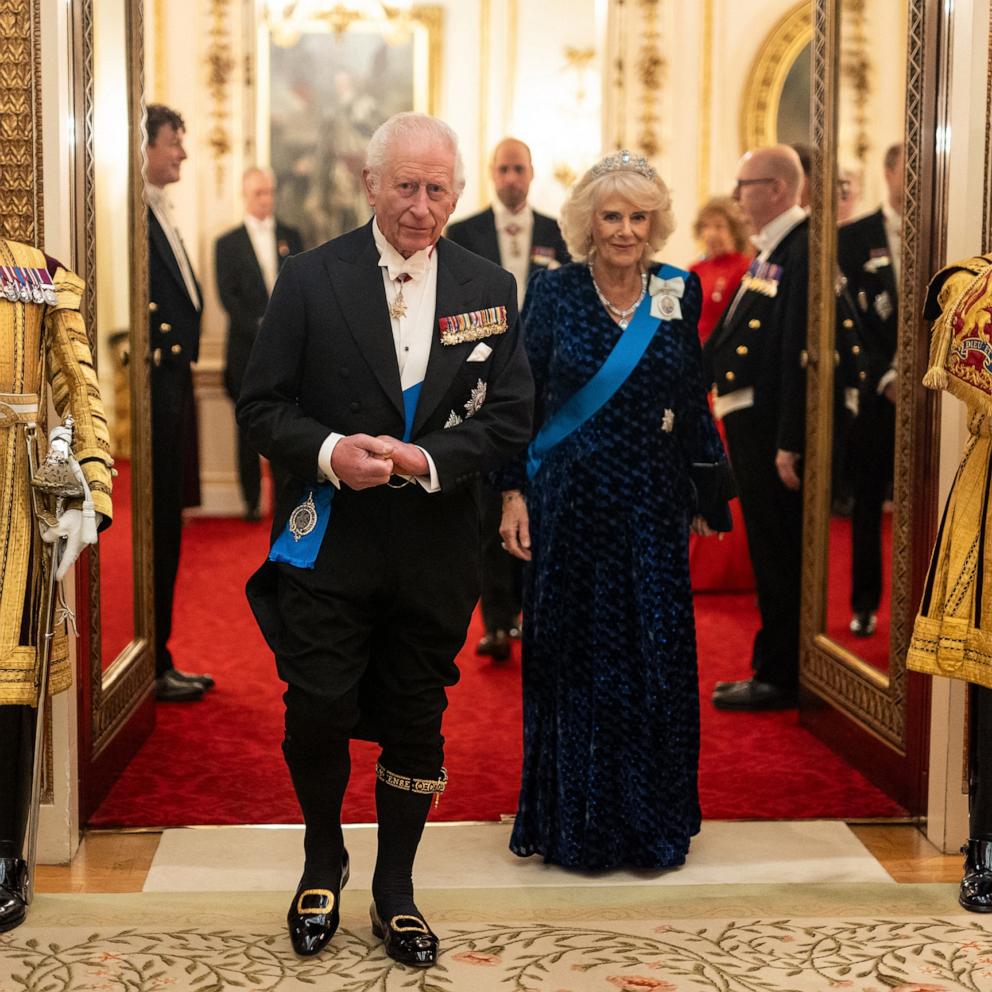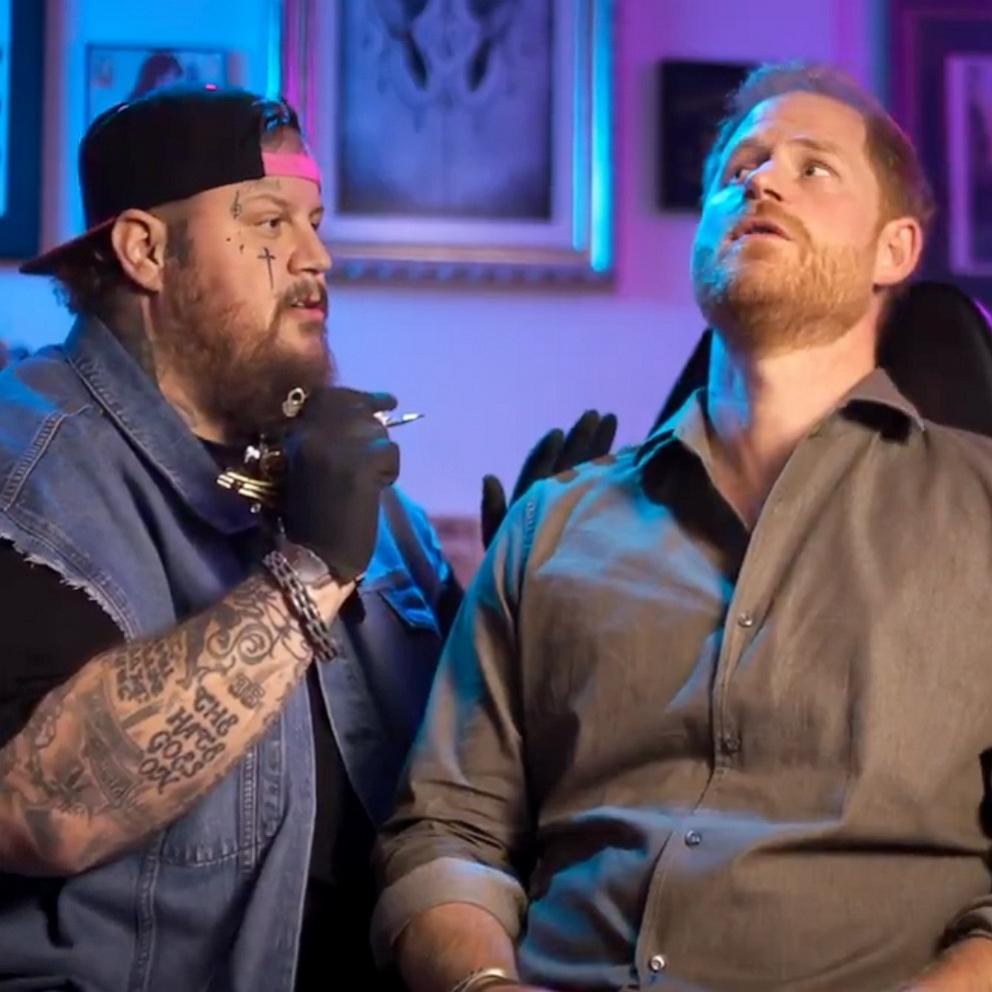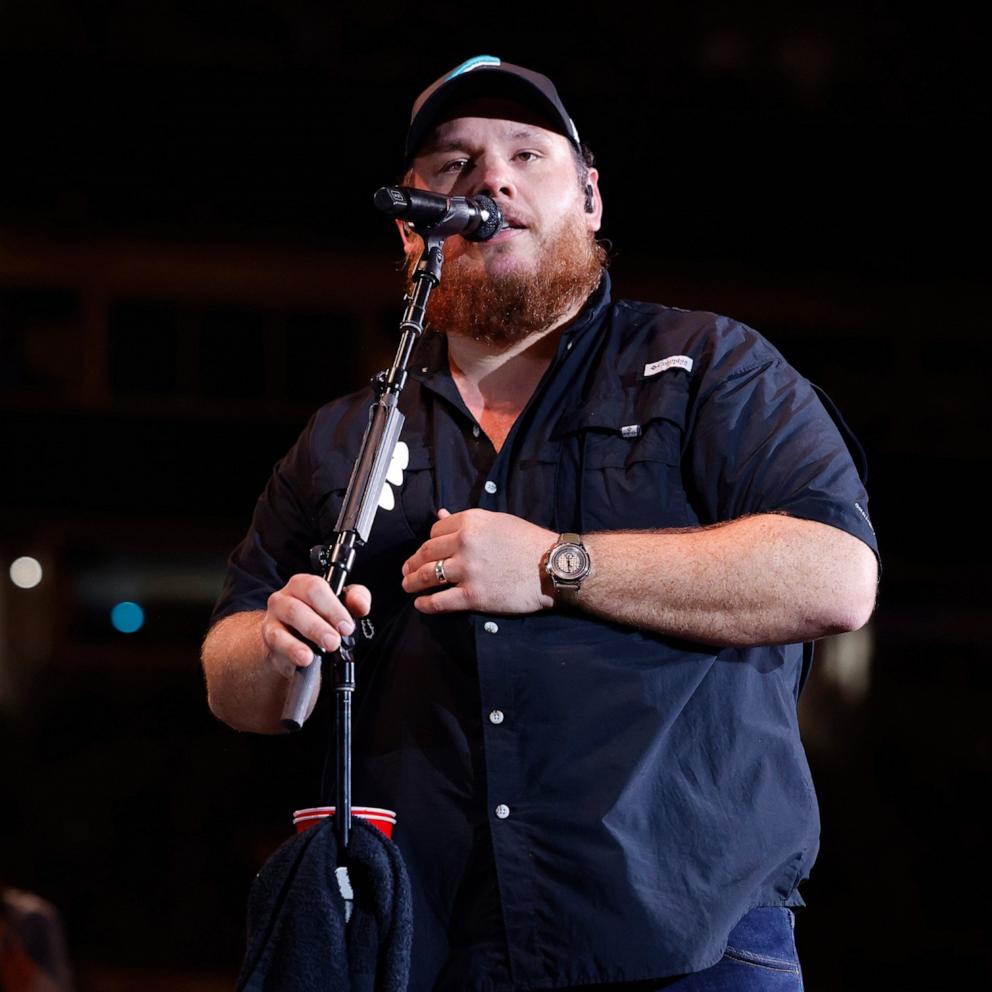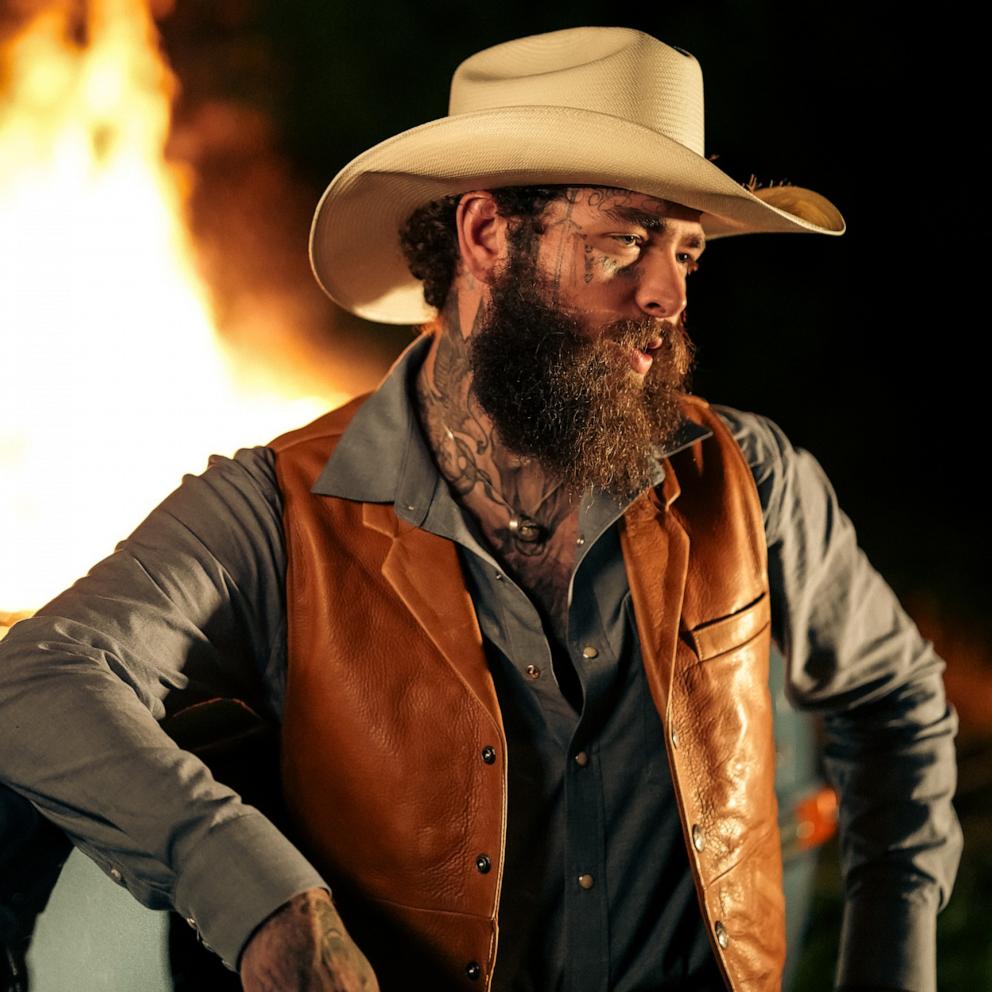Bachata star Romeo Santos on redefining the genre, singing in Spanish at a time when it wasn't embraced by the mainstream: 'That's not the case now'
On a warm Saturday night in September, 60,000 fans packed into the sold-out MetLife Stadium in New Jersey to see Romeo Santos, the first Latinx artist to ever headline there.
As part of Santos' "Utopia" tour promoting his new album, the concert was the highest-grossing in the stadium's history, knocking U2 out of the top spot.
"For artists, this is a really big deal," rapper and actor Cardi B, who made a surprise appearance at Santos' show, told ABC News. "And you know what? It just gives me hope. I just feel like sometimes people…[try] to make it seem like there's going to be a stop in your career, and [Santos] has been popping since not even my double-digit age. So it just gives me hope and it feels good."
Watch the full story on "Nightline" TONIGHT at 12:35 a.m. ET
Santos' sold-out show, however, is only one in a long list of records he's broken over the course of his two-decade-plus career. In that time, the Bronx, New York native has sold more than 100 million singles and 40 million albums. In 2018, he was among the highest-paid musicians, making more money than Sam Smith, Keith Urban and even fellow Latinx artist Jennifer Lopez.
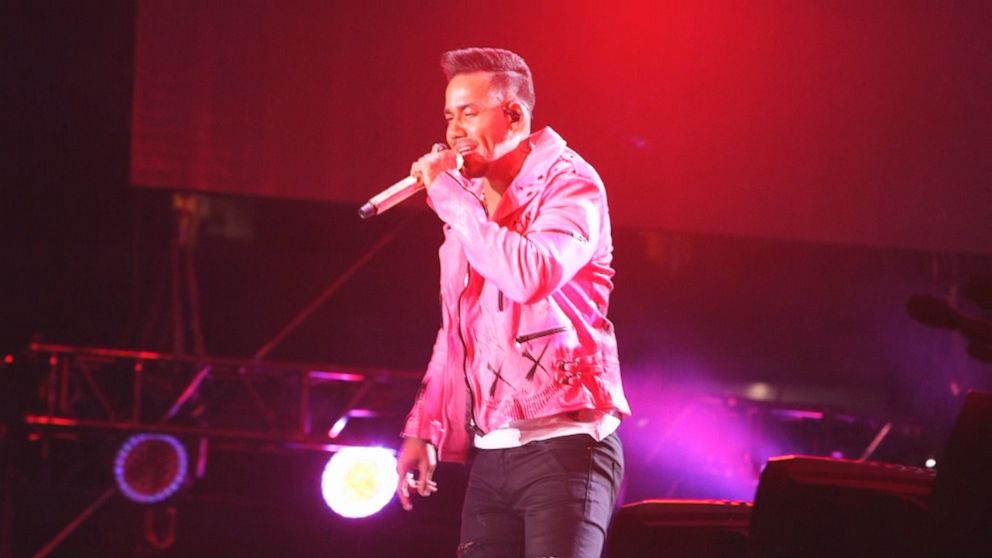
As English-Spanish collaborations have become more ingrained in mainstream pop music, Santos has stood out as a trailblazer among these crossover successes, working with stars like Usher ("Promise") and Drake ("Odio") years ago.
"When I started doing music, it was a lot worse," Santos told ABC News. "They would under no circumstances program a Latin record. They would tell us Latinos, 'Yeah, if you're going to collaborate with this artist, I get it. You know, like it's a Latin fusion...but you need to do an American version.'"
"That's not the case now," he added.
Santos has spent much of his career defining it on his own terms. The self-proclaimed "King of Bachata" said from "day one" he knew that he'd be singing mainly in Spanish and that it would be of the deeply romantic, nostalgic bachata -- a genre with roots in the Dominican Republic that's also tremendously popular among Dominican communities worldwide, such as in New York City.
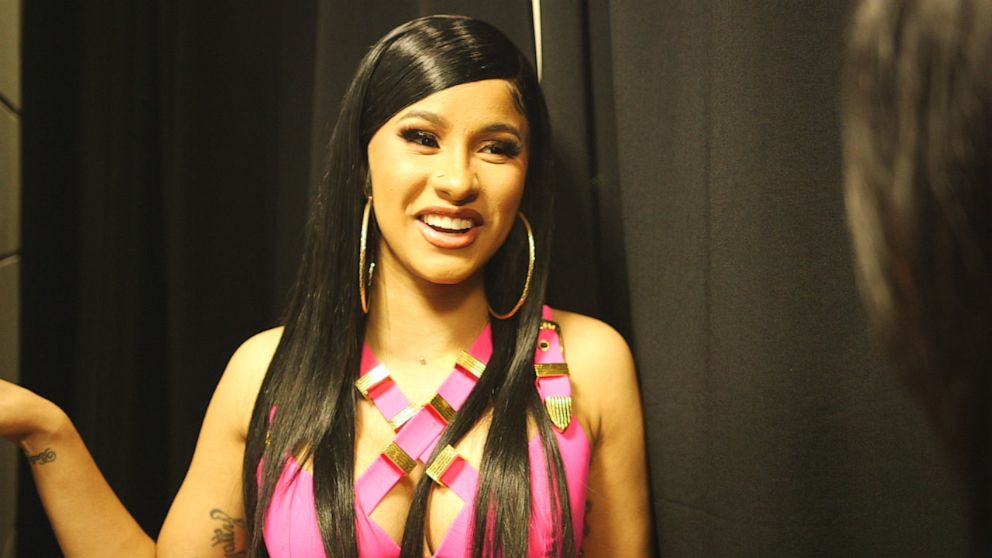
Santos began his musical journey in the late 1990s with his cousin Henry Santos and friends Lenny and Max Santos. Together, they formed the bachata supergroup Aventura, which revolutionized and modernized the genre with influences of R&B, rap and hip-hop.
"The Dominican community in New York really embraced bachata always," Jon Caramanica, a pop music critic at The New York Times who also hosts its "Popcast" podcast, told ABC News. "When Aventura came out, it sounded like nothing else…and basically, fundamentally altered the course of what bachata sounded like. But also, what American pop music, broadly construed, could embrace."
The band broke through with 2002’s "Obsesion" and went on to release five albums, all of which dominated the Latin charts.
"There's just a swag that we have when we're together," Santos said. "I don't want to sound corny or anything, but it's like we're the Power Rangers together."
Since he broke out as a solo artist in the early 2010s, Santos has made music in a time when Latinx music is more popular than ever. With artists like Bad Bunny, J Balvin and Ozuna bridging the musical cultural divide, Spotify says its "Viva Latino" playlist is growing five times faster than any other playlist on its Top 1,000 list.
As a solo artist, Santos has performed in multiple sold-out shows, including at Madison Square Garden and Yankee Stadium -- joining the ranks of Madonna and Paul McCartney.
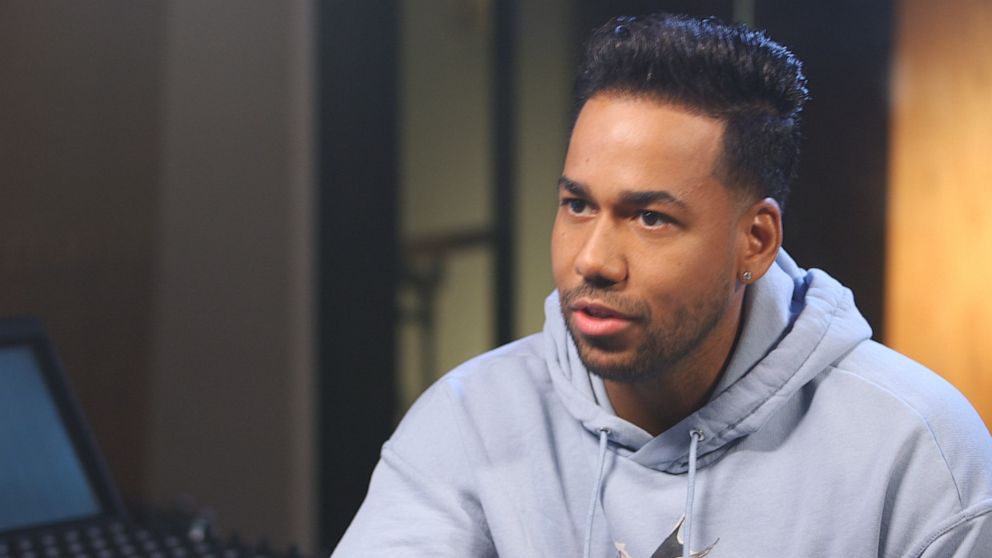
Santos said he's "lucky to have so many fans that love me and support me" after nearly 23 years of making music. And for his show at MetLife Stadium, he had a number of surprises. Not only did he reunite Aventura but he also brought out bachata legends, like Raulín Rodríguez, Monchy & Alexandra and Frank Reyes -- all of whom are also featured on his new album -- to play their own songs.
"This was one of my only concerts so far that I was also enjoying the performances because I’m just chilling and...listening to these legends," Santos said. "You know, these icons that inspired me. So it was beautiful and I felt that."
Caramanica pointed out the significance of Santos' sold-out show in one of the largest stadiums in the country.
"It should tell you that this is not a flash in the pan. [That this is not] cheesy, low-brow music," he said. "This should tell you that this is music that has power, [a] devoted fan base, and isn't going anywhere."
